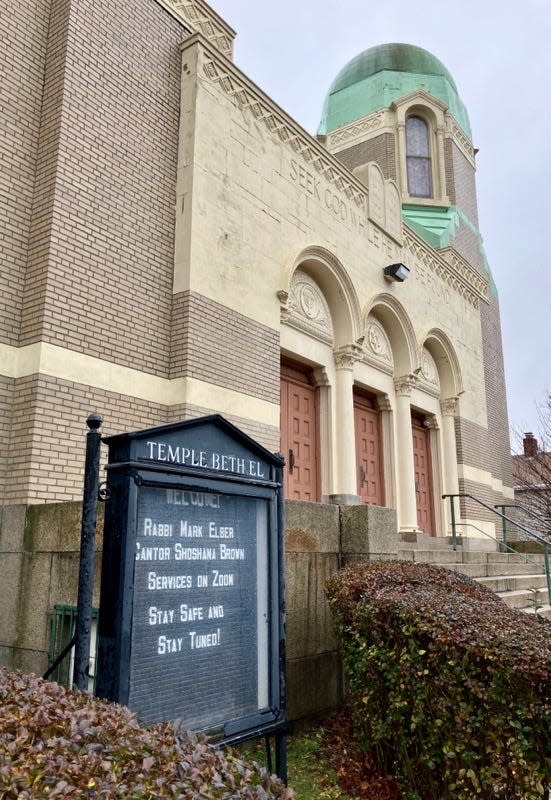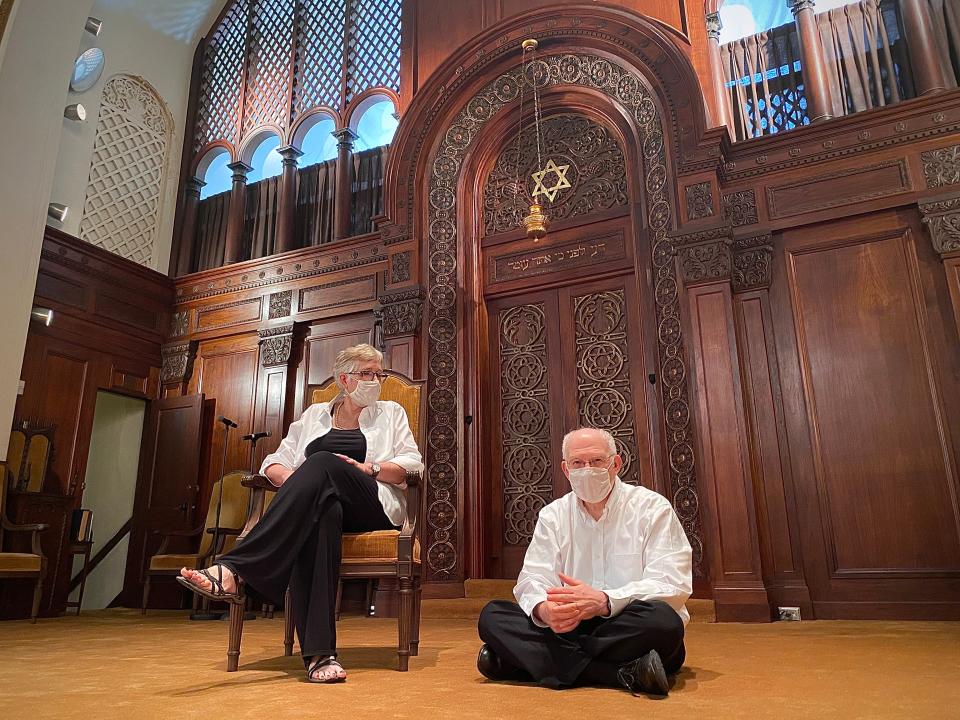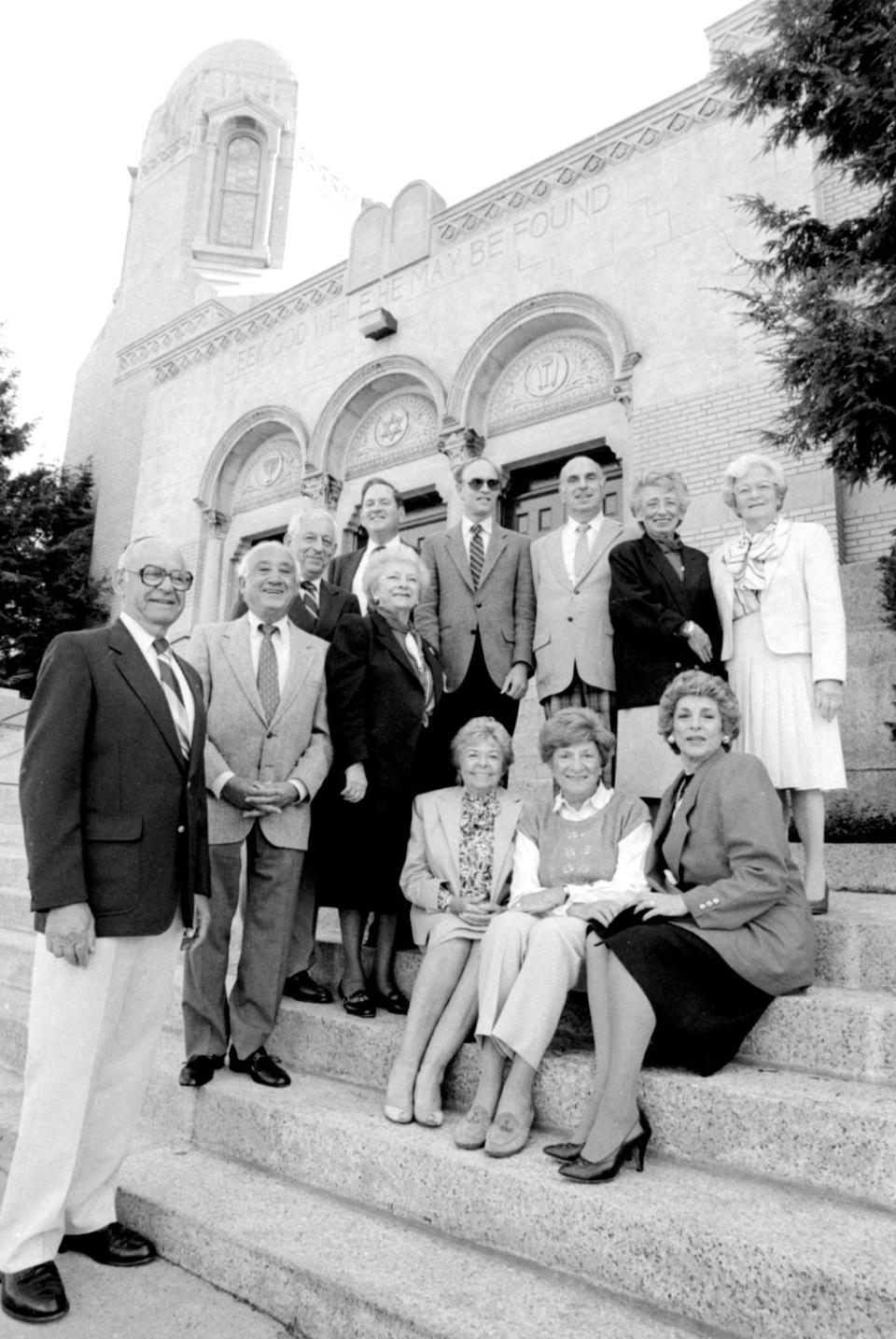Fall River's Temple Beth El will be put up for sale. It's the city's last synagogue.
FALL RIVER — The city’s Jewish community is losing its last place of worship.
According to a message from Stephen Silverman, president of Congregation Beth El, the congregation has “come to a crossroads” and must sell its synagogue at 385 High St. The congregation itself will continue.
The move comes after years of decline in the number of congregants and the rising expense of maintaining Temple Beth El, a large, aging building.
"It wasn’t so long ago that we would see at least 200 people at our High Holiday services,” Silverman wrote. “This year, there were 30. Even including those who watched the livestream, the total didn’t reach 50, in a sanctuary that seats 650.”
Fall River Wonders: What is the history of Fall River's Jewish community?

The congregation is currently led by husband and wife Rabbi Mark Elber and Cantor Shoshana Brown. Elber and Brown were not immediately available for comment.
Silverman said the congregation’s board decided unanimously to find a broker to sell the Temple Beth El building and possibly to find a new home for the congregants. Silverman wrote that the board is looking to move quickly so there’s no lapse in continuity.
“Our primary duty is to keep Congregation Beth El viable well into the future,” Silverman wrote. “As we are the last vestige of Judaism in the greater Fall River area, keeping the congregation alive is more important than ever.”
Declining Jewish congregation can't sustain building expenses
The building was constructed in 1929, during what Bristol Community College professor and historian Ron Weisberger said was the start of a high point in the city’s Jewish population.
“Our 95-year-old temple has numerous building maintenance problems, some of which would require a major investment to correct,” Silverman wrote. “We have already spent 55% of our annual maintenance budget in the first three months of this fiscal year. During the High Holidays, we had to put three buckets in the vestibule to catch water dripping from one of the towers.”
He wrote in his email that, at the rate of spending on maintenance, the congregation’s endowment will run dry in five years.
A labor of love: Fall River rabbi wins prize for his first book of poetry
Though People Incorporated leases space from the building for its preschool program, providing nearly half of the congregation’s annual revenue, that lease is set to expire in 2025 and will not be renewed. That loss of income will, Silverman wrote, hasten the loss of the endowment.
The temple building is on Fall River's list of significant structures, and is listed with the state's Historical Commission.

The last of Fall River's Jewish temples
Records show at one time Fall River hosted seven or possibly as many as 12 synagogues.
Temple Beth El reached its peak of activity in the 1950s, with 600 families attending services and its own bowling league, Braille class, scout troops and an educational lecture series that covered topics like Thomas Aquinas, the weather, Confucius, Sigmund Freud and Thomas Jefferson.
In 2012, the orthodox Congregation Adas Israel on Robeson Street sold its building to an evangelical Christian church, leaving Temple Beth El the last synagogue in the city.
Weisberger said most of the Jews that came to Fall River were immigrants, whose children moved away for college and didn’t come back.
“That left a much older population,” he said.

Silverman wrote that the average congregant’s age is between 75 and 80 years old.
Without Temple Beth El, the closest conservative synagogue is Tifareth Israel in New Bedford. United Brothers in Bristol, Rhode Island, and Temple Habonim in Barrington, Rhode Island, are reform synagogues.
“There was this very rich, vibrant Jewish community in Fall River, and it declined over the years," Weisberger said. “It’s one of the stories of Fall River but also of the Jewish community in the country, which has demographically shifted.
“This is the last of the synagogues, which is to my mind very sad.”
Dan Medeiros can be reached at dmedeiros@heraldnews.com. Support local journalism by purchasing a digital or print subscription to The Herald News today.
This article originally appeared on The Herald News: Temple Beth El in Fall River to be sold; decline in attendance blamed

